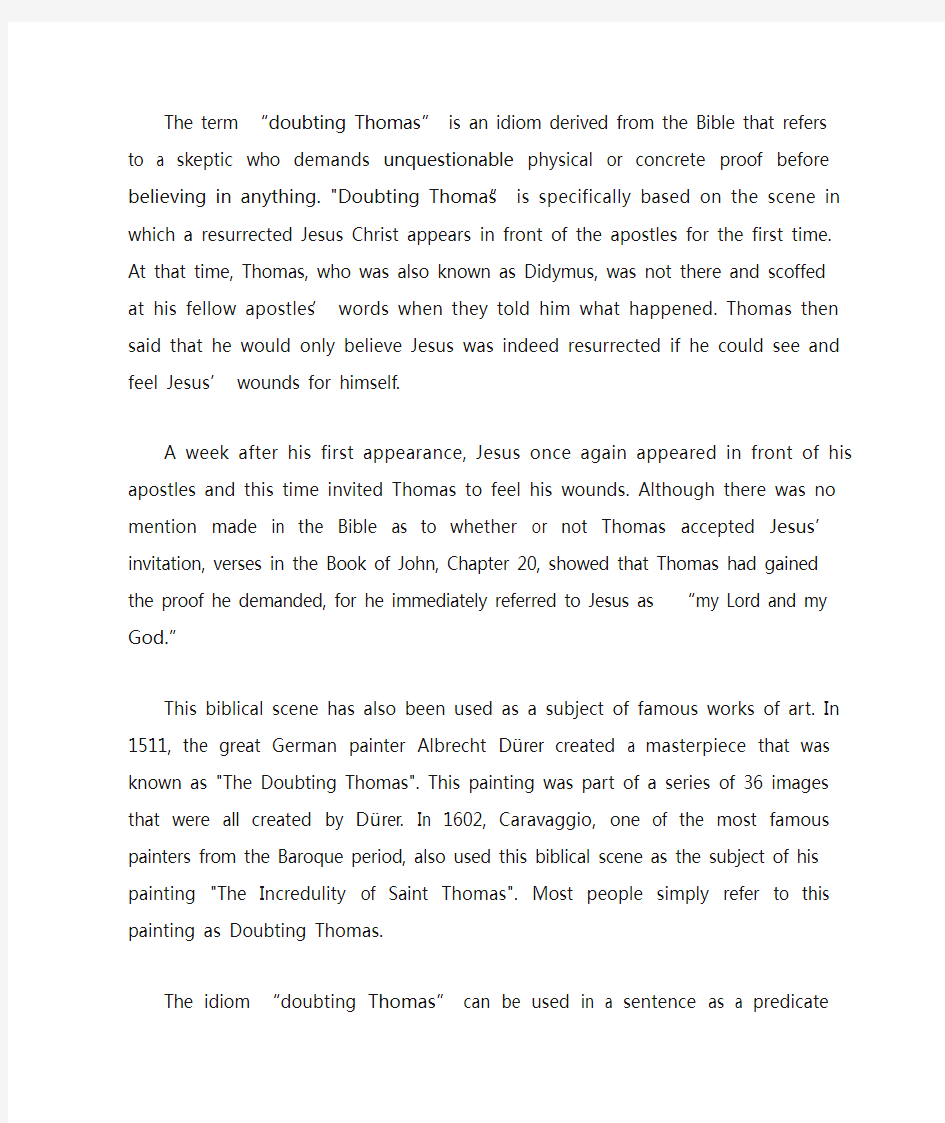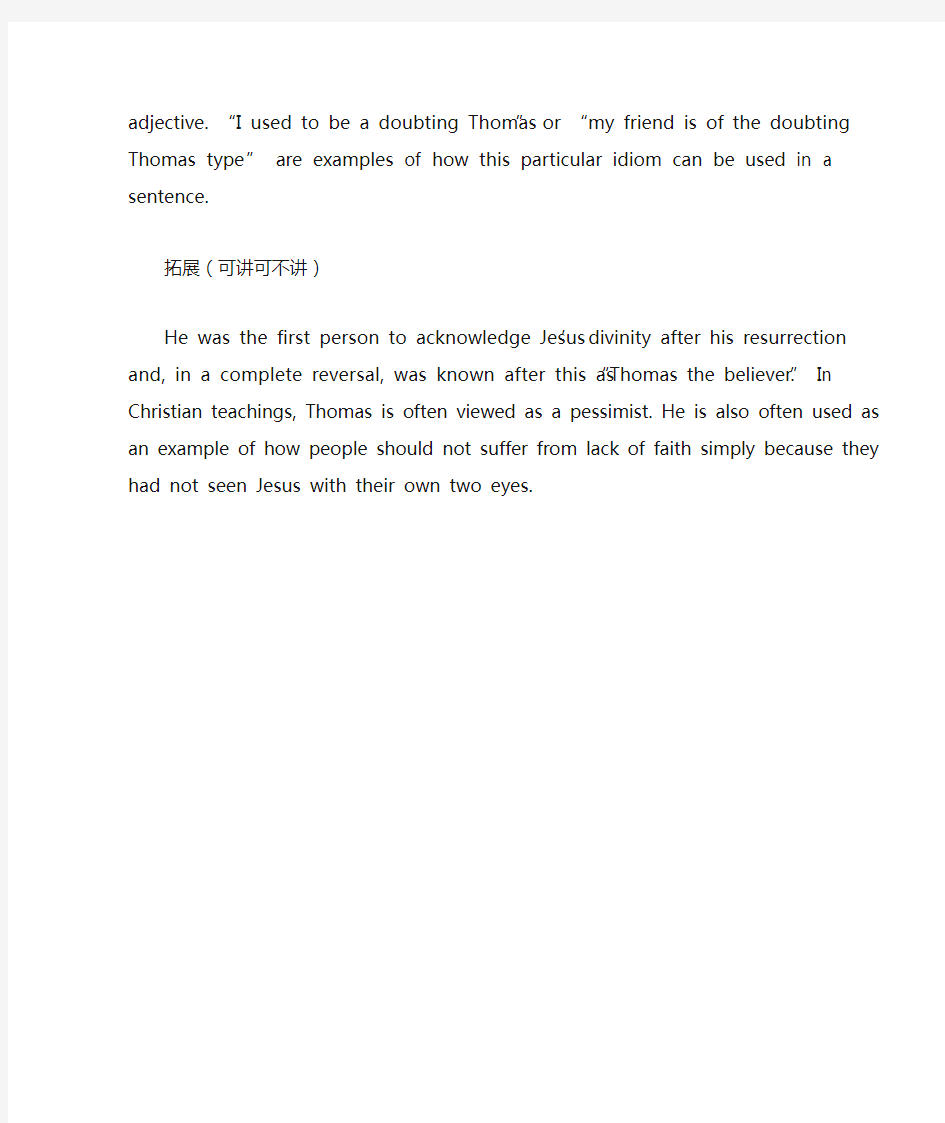a doubting thomas的意思


The term “doubting Thomas”is an idiom derived from the Bible that refers to a skeptic who demands unquestionable physical or concrete proof before believing in anything. "Doubting Thomas”is specifically based on the scene in which a resurrected Jesus Christ appears in front of the apostles for the first time. At that time, Thomas, who was also known as Didymus, was not there and scoffed at his fellow apostles’ words when they told him what happened. Thomas then said that he would only believe Jesus was indeed resurrected if he could see and feel Jesus’wounds for himself.
A week after his first appearance, Jesus once again appeared in front of his apostles and this time invited Thomas to feel his wounds. Although there was no mention made in the Bible as to whether or not Thomas accepted Jesus’invitation, verses in the Book of John, Chapter 20, showed that Thomas had gained the proof he demanded, for he immediately referred to Jesus as “my Lord and my God.”
This biblical scene has also been used as a subject of famous works of art. In 1511, the great German painter Albrecht Dürer created a masterpiece that was known as "The Doubting Thomas". This painting was part of a series of 36 images that were all created by Dürer. In 1602, Caravaggio, one of the most famous painters from the Baroque period, also used this biblical scene as the subject of his painting "The Incredulity of Saint Thomas". Most people simply refer to this painting as Doubting Thomas.
The idiom “doubting Thomas”can be used in a sentence as a predicate adjective. “I used to be a doubting Thomas”or “my friend is of the doubting Thomas type”are examples of how this particular idiom can be used in a sentence.
拓展(可讲可不讲)
He was the first person to acknowledge Jesus’ divinity after his resurrection and, in a complete reversal, was known after this as “Thomas the believer.”In Christian teachings, Thomas is often viewed as a pessimist. He is also often used as an example of how people should not suffer from lack of faith simply because they had not seen Jesus with their own two eyes.
